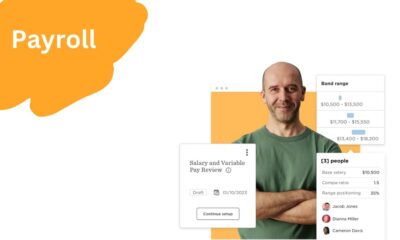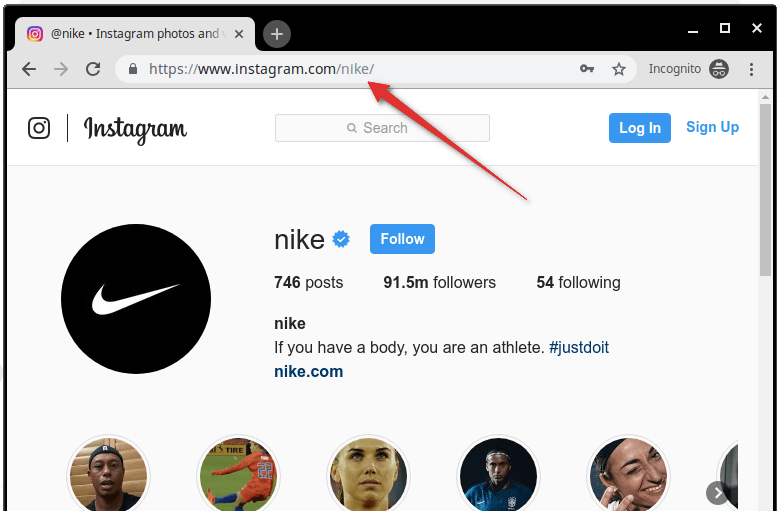Business Imprint
PEO vs. EOR: Making the Right Choice for Your Business
Are you a business owner wondering whether to choose an Employer of Record or PEO? Making the right decision is crucial for your company’s success. In this article, we will explore the key differences between PEOs (Professional Employer Organizations) and EORs (Employer of Record), helping you determine which option is best suited for your specific needs and requirements. So, let’s dive in and find out which one is right for you!
Understanding PEOs
When it comes to managing your workforce, considering a Professional Employer Organization (PEO) can be a game-changer. Here’s what you need to know about PEOs:
What is a PEO?
- A PEO is an external organization that partners with businesses to handle HR tasks and responsibilities.
- They become the employer of record for tax purposes, allowing them to manage payroll taxes, benefits administration, and other employee-related functions.
How do PEOs work?
- Businesses enter into a co-employment relationship with the PEO.
- The business maintains control over day-to-day operations and retains strategic decision-making authority.
- The PEO takes on administrative tasks like payroll processing, employee benefits management, risk management, and compliance.
- Benefits of using a PEO: Benefits Access to comprehensive HR services Cost-effective employee benefits Reduced administrative burden Expertise in HR regulations
- Is a PEO right for your business? Consider these factors:
- Company size: Small or medium-sized businesses without dedicated HR departments often benefit from partnering with a PEO due to limited resources.
- Growth plans: If you’re planning rapid expansion or entering new markets, a reliable support system provided by the expertise of a trusted PEO can help navigate complex employment laws.
- Compliance requirements: Staying compliant with ever-changing labor laws and regulations can be challenging but necessary; therefore, relying on experienced professionals from a reputable PEO ensures adherence while minimizing legal risks.
- Drawbacks of using a PEO:
- Less control over certain HR functions
- Potential loss of company culture autonomy
- Making an informed decision: Assess your unique business needs, evaluate the services offered by different PEOs, and consider their reputation and industry experience. Remember to weigh the pros against cons before deciding if a PEO is right for you.
By understanding how PEOs operate and evaluating their benefits, drawbacks, and suitability for your specific circumstances, you can make an informed decision that aligns with your business objectives.
Benefits of Using a PEO
When it comes to managing your workforce, using a Professional Employer Organization (PEO) can offer several advantages. Here are some key benefits:
- Cost Savings: Partnering with a PEO can help reduce costs associated with employee benefits, payroll processing, and HR administration. By leveraging their economies of scale, PEOs can negotiate better rates for insurance plans and other services.
- Access to Expertise: PEOs specialize in HR management and have experienced professionals who stay up-to-date with the latest laws and regulations. This allows you to tap into their expertise without having to hire an entire HR department.
- Time Efficiency: With a PEO handling administrative tasks such as payroll, tax filings, and employee onboarding, you can focus more on strategic business activities that drive growth. This saves you time and lets you concentrate on what matters most – running your business.
- Compliance Support: Staying compliant with employment laws is crucial but often challenging for businesses of all sizes. A reliable PEO provides guidance on labor regulations, helps ensure proper documentation is in place, and assists during audits or legal disputes.
- Employee Benefits Packages: Offering competitive benefits is essential for attracting top talent in today’s job market. Many PEOs provide access to comprehensive benefit packages that include health insurance, retirement plans, flexible spending accounts (FSAs), and more.
- Risk Mitigation: When it comes to employer liabilities like workers’ compensation claims or unemployment insurance management, partnering with a PEO helps share these risks while providing expert guidance on risk mitigation strategies.
- Scalability Flexibility: As your business grows or experiences fluctuations in staffing needs throughout the year, a PEO offers scalability options tailored to your requirements without the hassle of hiring or downsizing internally.
In conclusion,
Using a professional employer organization has numerous benefits including cost savings, access to HR expertise, time efficiency, compliance support, comprehensive benefits packages, risk mitigation strategies, and scalability flexibility. Consider these advantages when deciding whether a PEO is the right choice for your business.
Considerations When Choosing a PEO
When deciding between a Professional Employer Organization (PEO) or an Employer of Record (EOR), there are several important factors to consider. Here are some key considerations to keep in mind:
- Business Needs: Assess your specific business needs and goals before making a decision. Determine whether you require comprehensive HR services, such as payroll management, benefits administration, and compliance support that a PEO provides, or if you only need assistance with employment contracts and legal compliance offered by an EOR.
- Industry Expertise: Consider the industry expertise of the PEO or EOR provider. Look for one that has experience working with businesses similar to yours. This ensures they understand your unique challenges and can provide tailored solutions.
- Service Offerings: Evaluate the range of services offered by each option carefully. A PEO typically offers a broader spectrum of HR services compared to an EOR, including employee training programs, performance management systems, and recruitment support.
- Costs: Compare the costs associated with both options – PEOs usually charge a percentage-based fee on top of employee salaries while EORs may have fixed rates per employee or project basis pricing structures. Analyze which pricing model aligns better with your budgetary requirements.
- Compliance Support: Compliance is crucial in today’s ever-changing regulatory landscape. Ensure that whichever option you choose provides robust compliance support to mitigate risks related to employment laws, tax regulations, healthcare mandates, etc.
6 .Scalability: Consider how easily each option scales as your business grows or contracts over time? Will they be able to accommodate changes in headcount quickly without compromising quality?
7 .Geographical Reach: If you operate across multiple locations or plan on expanding internationally soon; make sure that your chosen provider has extensive geographical reach and can facilitate global employment capabilities if needed.
8 .References and Reviews: Research the reputation, testimonials, and customer reviews of potential PEO or EOR providers. Seek recommendations from other businesses in your industry to gauge their satisfaction levels.
By carefully considering these factors, you’ll be better equipped to make an informed decision on whether a PEO or EOR is the right choice for your organization. Remember, every business has unique needs so take the time to assess what aligns best with your requirements before finalizing your decision.
What is an EOR?
An Employer of Record (EOR) is a service provider that assumes all the legal responsibilities and obligations of being an employer for your company’s contingent workforce. They handle tasks such as payroll processing, tax withholding, benefits administration, and compliance with employment laws.
Here are some key points to understand about EORs:
- Legal Compliance: An EOR ensures that your business remains compliant with local labor laws, regulations, and tax requirements by taking on the responsibility of managing employee contracts, work permits, visas, and other legal documents.
- Payroll Management: With an EOR in place, you can outsource payroll processing tasks like paycheck distribution, calculating taxes owed by both employees and employers, withholding deductions for benefits or insurance plans accurately.
- Benefits Administration: Employers of Record often offer comprehensive benefit packages to their employees on behalf of client companies. This includes health insurance coverage options (medical/dental/vision), retirement plans (401(k)), paid time off policies (vacation/sick leave), and more.
- Risk Mitigation: By partnering with an EOR who specializes in compliance matters related to HR regulations across various jurisdictions worldwide; businesses can mitigate risks associated with misclassification issues or non-compliance penalties.
- Global Expansion Support: For companies looking to expand into international markets without establishing a legal entity or navigating complex foreign employment regulations independently; leveraging the services of an EOR simplifies the process while ensuring adherence to local labor practices.
- Flexibility & Scalability: Engaging an EOR allows organizations to quickly scale their workforce up or down based on demand fluctuations without having to worry about administrative burdens associated with hiring/firing processes in different locations.
In summary,Employers of Record provide a valuable solution for businesses seeking flexibility in managing their contingent workforce while minimizing legal risk exposure across multiple regions or countries
Advantages of Using an EOR
Using an Employer of Record (EOR) can provide several key advantages for your business. Here are some reasons why you should consider using an EOR:
- Expertise in Employment Compliance: An EOR specializes in managing employment and labor laws, ensuring that your business remains compliant with all regulations. This expertise helps reduce the risk of legal issues and penalties.
- Global Expansion Made Easy: If you are planning to expand your business internationally, partnering with an EOR can simplify the process. They have a global network and knowledge of local employment practices, making it easier to navigate complex international markets.
- Efficient Payroll Administration: With an EOR, you can streamline payroll administration tasks such as calculating wages, processing payments, and handling tax withholdings. This frees up time for your HR team to focus on more strategic initiatives.
- Access to Top Talent: An EOR often has access to a wide pool of talent across different regions or countries. By leveraging their network and recruitment capabilities, you can tap into skilled professionals who may not be easily accessible through traditional hiring methods.
- Flexibility and Scalability: Whether you need temporary staff for a short-term project or want to scale quickly during peak seasons, an EOR offers flexibility in workforce management without the long-term commitments associated with hiring permanent employees.
- Reduced Administrative Burden: Managing employee benefits, insurance coverage, worker’s compensation claims, and other administrative tasks can be time-consuming for businesses. By working with an EOR, these responsibilities are handled by experts who specialize in navigating complex HR processes.
- Risk Mitigation: Partnering with an experienced EOR helps mitigate risks associated with employee-related liabilities such as wrongful termination claims or workplace injuries since they take on certain employer responsibilities on behalf of your company.
Remember that choosing between a PEO (Professional Employer Organization) and an EOR depends on your specific business needs. Take the time to assess your requirements, consult with professionals, and consider the advantages of each option before making a decision.
Factors to Consider When Deciding Between a PEO vs EOR
When deciding between a Professional Employer Organization (PEO) or an Employer of Record (EOR), there are several important factors to consider. Here’s a breakdown of the key considerations that can help you make an informed decision:
- Business Needs: Evaluate your specific business needs and goals. Determine whether you require comprehensive HR services, such as payroll processing, benefits administration, and employee training (which a PEO can provide), or if you simply need assistance with legal compliance and payroll management (which an EOR specializes in).
- Company Size: Consider the size of your company. If you have fewer than 50 employees, partnering with a PEO may be more cost-effective since they can leverage their resources across multiple organizations. On the other hand, larger companies may benefit from the tailored solutions offered by an EOR.
- Geographical Reach: Assess your geographical reach or expansion plans. If you’re planning to operate in multiple states or countries, partnering with an EOR that has global capabilities can simplify international employment regulations and ensure compliance.
- Control Over Employees: Determine how much control you want over your employees’ day-to-day activities. A PEO acts as a co-employer, which means they share certain employer responsibilities with you but also exert some influence over HR decisions. Conversely, an EOR allows for more direct control over day-to-day operations while handling administrative tasks on your behalf.
- Costs: Compare the costs associated with each option carefully. While both options involve fees for services rendered, consider not only upfront costs but also long-term savings potential based on efficiencies gained through outsourcing HR functions.
| Factor | PEO | EOR |
|---|---|---|
| HR Services | Comprehensive range | Specialized focus |
| Company Size | Cost-effective for smaller businesses | Tailored solutions for larger organizations |
| Geographical Reach | Limited to certain regions | Global capabilities |
| Control Over Employees | Shared employer responsibilities | Direct control with administrative support |
| Costs | Lower upfront costs, potential long-term savings through efficiency gains | Potentially higher upfront costs, but more direct control |
These factors should help you weigh the pros and cons of each option and make an informed decision that aligns with your business needs and goals. Remember to consider the unique aspects of your organization when making this important choice.
Conclusion
Here are the key points to consider when deciding between a PEO or EOR:
- Company Size: If you’re a small business with limited resources and want comprehensive HR services, a PEO may be the better option. On the other hand, if you’re an established company looking for minimal involvement in HR tasks, an EOR might suit your needs.
- Costs: PEOs typically charge a percentage of your payroll while EORs charge a fixed fee per employee. Consider your budget and weigh it against the level of service provided by each option.
- Control and Flexibility: With an EOR, you have greater control over your employees’ day-to-day activities as they remain under your management. A PEO offers shared responsibility but can limit some decision-making power.
- Legal Compliance: Both options provide assistance with legal compliance, but it’s important to assess which one aligns best with your industry-specific regulations and requirements.
- Employee Benefits: A PEO often offers access to more extensive benefits packages due to their larger client base, helping attract top talent for recruitment purposes.
- Geographical Expansion: If you plan on expanding into new regions or countries, consider whether the selected solution has international capabilities that align with your expansion goals.
- Long-Term Strategy: Evaluate whether choosing either a PEO or EOR harmonizes better with your long-term growth plans and organizational structure.
Remember that every business is unique, so take time to evaluate all aspects before making a final decision on whether to opt for a Professional Employer Organization (PEO) or Employer of Record (EOR). Assessing factors such as company size, costs, control/flexibility requirements will help determine which solution is right for you.
Conclusion
In conclusion, choosing between a PEO (Professional Employer Organization) and an EOR (Employer of Record) depends on your specific needs and priorities. Both options offer unique benefits that can help streamline your business operations.
If you are looking for comprehensive HR services, including payroll management, employee benefits administration, and compliance support, a PEO might be the right choice for you. With a PEO, you can offload these tasks to experts in the field, allowing you to focus on core business activities.
On the other hand, if your main concern is expanding into new markets or hiring international employees while staying compliant with local labor laws and regulations, an EOR could be more suitable. An EOR takes care of all employment-related responsibilities for your global workforce, providing peace of mind and saving valuable time.
Ultimately, it’s crucial to assess your company’s specific requirements before making a decision. Consider factors such as budget constraints, growth plans, geographical scope of operations, and desired level of control over HR functions. By carefully evaluating these aspects and understanding the pros and cons of each option presented in this article – PEOs or EORs – you can make an informed choice that best aligns with your organization’s goals.
Remember: there is no one-size-fits-all solution; what matters most is finding the right fit for YOUR business!
-

 Manage Your Business1 day ago
Manage Your Business1 day agoTOP 10 VoIP providers for Small Business in 2024
-

 Cyber Risk Management5 days ago
Cyber Risk Management5 days agoHow Much Does a Hosting Server Cost Per User for an App?
-

 Outsourcing Development5 days ago
Outsourcing Development5 days agoAll you need to know about Offshore Staff Augmentation
-

 Software Development5 days ago
Software Development5 days agoThings to consider before starting a Retail Software Development
-
Edtech1 day ago
How to fix PII_EMAIL_788859F71F6238F53EA2 Error
-

 Grow Your Business5 days ago
Grow Your Business5 days agoThe Average Size of Home Office: A Perfect Workspace
-
Solution Review5 days ago
Top 10 Best Fake ID Websites [OnlyFake?]
-
Business Imprint5 days ago
How Gaming Technologies are Transforming the Entertainment Industry












